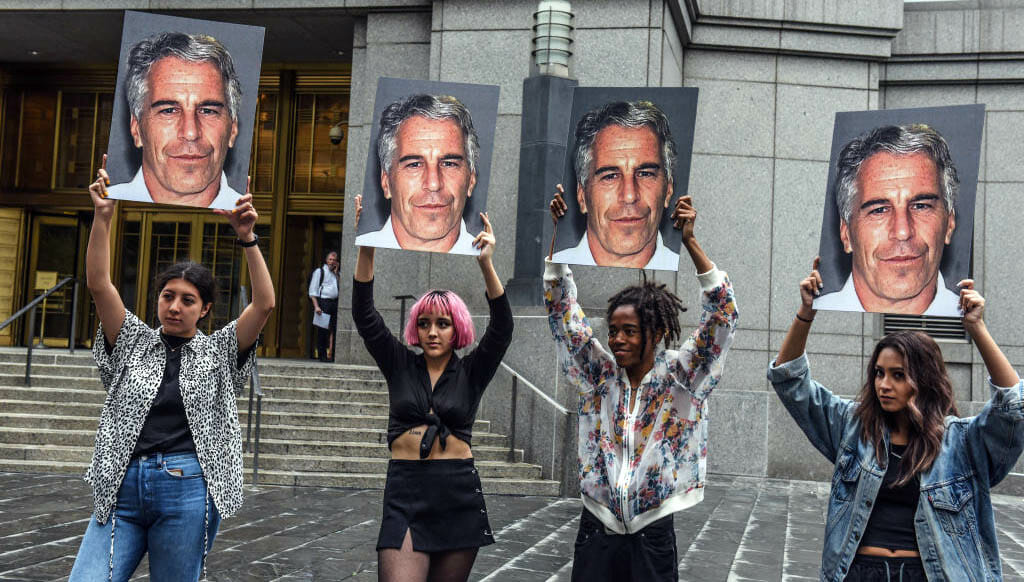The movement that’s forced lawmakers into action on the minimum wage has been nothing short of monumental.
|
THIS WEEK
|
|
The U.S. House of Representatives may well vote this week on the Raise the Wage Act, legislation that would give American workers the first federal minimum wage boost in more than a decade. A new analysis from the Congressional Budget Office says the bill would increase pay for 27 million people and reduce both poverty and inequality.
The pitiful part of all this? That Congress has taken this long to act on raising the minimum wage. The encouraging part? The movement that’s forced lawmakers into action has been nothing short of monumental. Workers have spent years fighting for the $15 per-hour minimum this legislation will put in place over the next few years.
Restaurant workers, meanwhile, have been mobilizing against the current subminimum tipped wage that keeps millions of them in poverty. People with disabilities have been decrying the loophole that lets employers exploit them for pennies on the dollar. This legislation would plug these loopholes, over the fierce opposition of our executive class. If the House passes the Raise the Wage Act, we’ll all be a step closer to justice.
Chuck Collins, for the Institute for Policy Studies Inequality.org team |
|
|
|
|
INEQUALITY BY THE NUMBERS
|
 |
|
|
|
|
|
|
FACES ON THE FRONTLINES
|
 |
A Bus with a Pitch Congress So Needs To Hear
|
| The GOP Tax Cuts and Jobs Act enacted late in 2017, the nonpartisan Congressional Research Service reported late this spring, has been a smashing success — for the U.S. corporations that have been smashing workers for the past four decades. Under the tax cut, the estimated average corporate tax rate has dropped from 23.4 to 12.1 percent while workers have seen “no indication of a surge in wages.” But activists are now pushing back with a nationwide “Tax the Rich” bus tour that stopped last week in Washington, D.C. Leading the effort: Tax March, a coalition of over 70 groups working to create a tax system — and an economy — that helps everyone, not just those at the top. Jarod Facundo has more. |
|
|
|
|
WORDS OF WISDOM
|
 |
|
|
|
|
|
PETULANT PLUTOCRAT
OF THE WEEK
|
 |
A Horror for an Unequal Epoch, on Multiple Levels
|
| How would you like this as your epitaph: “the ultimate symbol of plutocratic rot?” The shady Wall Streeter Jeffrey Epstein will likely wear this label — bestowed upon him last week by a Michelle Goldberg New York Times column — for the rest of his life, even if the 66-year-old somehow beats the charges on sexually trafficking underage girls that federal prosecutors in New York have just filed against him. Epstein, a one-time pal of both Bill Clinton and Donald Trump, has beat sex predator charges before, thanks to a scandalously generous deal his lawyers bargained with then-U.S. attorney Alex Acosta, the just-resigned U.S. labor secretary. Epstein himself didn’t say much last week. What’s he feeling? Not likely much remorse. After his first escape from trafficking charges, Epstein joked to a Florida reporter that he legally now rated as only a sexual “offender,” not a “predator.” That, explained Epstein, comes down to “the difference between a murderer and a person who steals a bagel.” |
|
|
|
|
GREED AT A GLANCE
|
 |
|
|
|
|
|
|
TOO MUCH
|
 |
| The Penthouse Reimagined: Peak Decadence? |
| Have we hit peak decadence in the United States? Probably not. But we’re getting awfully close. The latest evidence: the emerging deep-pocket world of the “super-penthouse.” What exactly makes a penthouse super? Luxury analysts at List Sotheby’s International Realty have taken on the task of defining this new phenomenon. Inequality.org co-editor Sam Pizzigati, author of The Case for a Maximum Wage, has more. |
|
|
|
|
|
|
MUST READS
|
This week on Inequality.org
Sarah Anderson, Will San Francisco Be the Second City to Tax Extreme CEO-Worker Pay Gaps? In November 2019, the city’s voters will decide the fate of a proposed tax on corporations that pay their top execs more than 100 times worker pay.
Kyra Sadovi, Breaking up Big Banks Has Gone From Expert Musing to Something Americans Generally Support. Breaking up the banks may be not as far-fetched an idea as bank lobbyists would have us believe.
Robert P. Alvarez, Return of the Poll Tax. Florida's anti-democratic new tax will cost the state hundreds of thousands of voters — and hundreds of millions of dollars.
Elsewhere on the Web
Kunal Bansal Chandigarh, Why Danish People Are the Happiest People in the World, Thrive Global. To create a material base for happiness, foster “a decisive and widespread distribution of income among all citizens.”
Erin Aubry Kaplan, Americans are finally acknowledging inequality. Now we need to examine its racist roots, Los Angeles Times. On the need to explicitly connect inequality’s devastation to the in-group/out-group thinking that makes economic inequality all but guaranteed.
Lynn Parramore, After Over Three Decades, Rebel Economist Breaks Through to Washington. Here’s How He Did It. Institute for New Economic Thinking. Busting the inequality-driving consensus that only shareholders matter.
Branko Milanovic, Oligarchs and oligarchs, GlobalInequality. Our world's super rich come in two flavors.
Rakeen Mabud, Going Beyond Equal Pay: How U.S. Women’s Soccer Highlights Broader Economic Inequalities, Forbes. Those who have faced an economy stacked against them are no longer putting up with it.
Eric Levitz, AOC Is Making Monetary Policy Cool (and Political) Again, New York. An astute analysis of how the conventional Federal Reserve wisdom undergirds America’s growing concentration of wealth. |
|
|
|
|
A FINAL FIGURE
|
 |
|
|
|
|
|
|